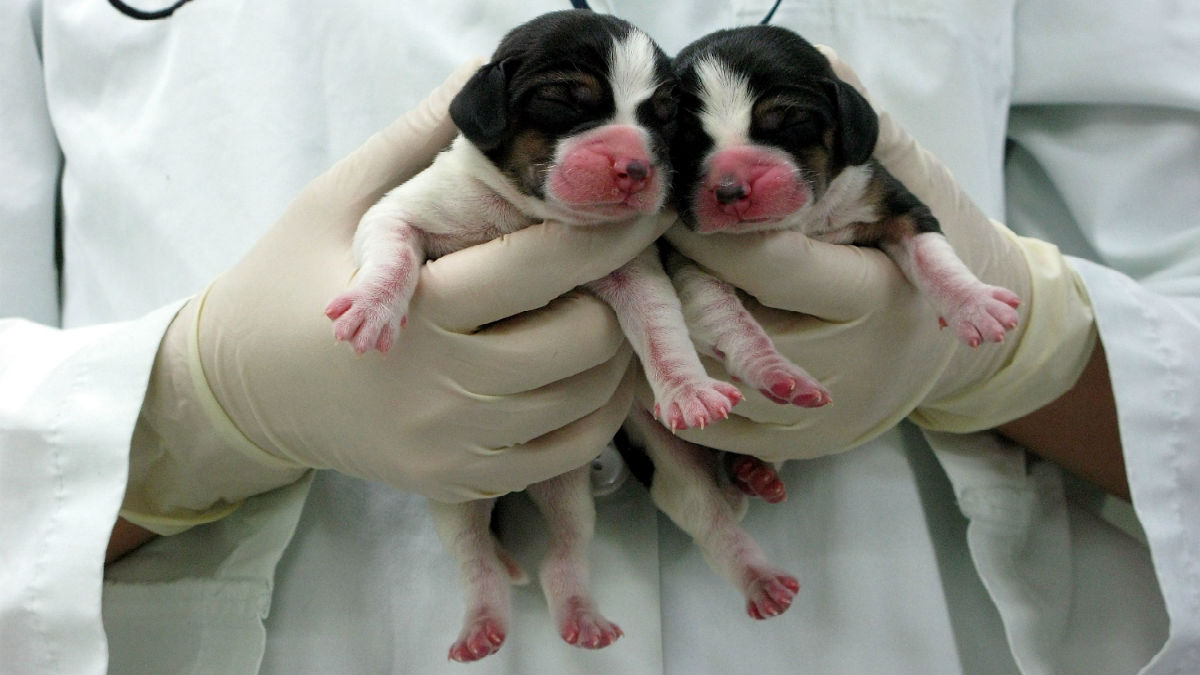China plans world's biggest 'animal cloning factory'
Announcement comes months after Europe bans cloning of livestock for farming amid high death rate

A free daily email with the biggest news stories of the day – and the best features from TheWeek.com
You are now subscribed
Your newsletter sign-up was successful
China is planning to open the world's biggest "animal cloning factory" next year, producing dogs, horses and over a million beef cattle a year.
Although the primary function of the Boyalife centre will be to produce livestock for farming, the £21m plant will also clone racehorses and family pets. The facility will bring the science of cloning "closer to the mainstream", say Chinese state media.
With the price of meat having tripled in the past 15 years and Chinese farmers struggling to provide enough beef for the country's rapidly growing middle class, agricultural biotechnology is seen as a solution to plug the shortfall.
The Week
Escape your echo chamber. Get the facts behind the news, plus analysis from multiple perspectives.

Sign up for The Week's Free Newsletters
From our morning news briefing to a weekly Good News Newsletter, get the best of The Week delivered directly to your inbox.
From our morning news briefing to a weekly Good News Newsletter, get the best of The Week delivered directly to your inbox.
A joint venture by Chinese and South Korean biotechnology companies, the centre will offer to clone family pets for $100,000 each.
The announcement is expected to be condemned by animal welfare activists in Europe, where the cloning of livestock for farming was banned in September.
Renate Sommer, the European Parliament's environment committee co-rapporteur, criticised the technique two months ago for not being "fully mature".
She said the mortality rate remains high, with many of the animals that are born alive dying in the first few weeks and dying "painfully".
A free daily email with the biggest news stories of the day – and the best features from TheWeek.com
But Xu Xiaochun, chairman of BoyaLife, dismissed such concerns. "Let me ask one question. Was this ban based on scientific rationale or ethical rationale or political agenda?" he told the Daily Telegraph.
"Legislation is always behind science. But in the area of cloning, I think we are going the wrong way and starting to kill the technology."
-
 What to know before filing your own taxes for the first time
What to know before filing your own taxes for the first timethe explainer Tackle this financial milestone with confidence
-
 The biggest box office flops of the 21st century
The biggest box office flops of the 21st centuryin depth Unnecessary remakes and turgid, expensive CGI-fests highlight this list of these most notorious box-office losers
-
 The 10 most infamous abductions in modern history
The 10 most infamous abductions in modern historyin depth The taking of Savannah Guthrie’s mother, Nancy, is the latest in a long string of high-profile kidnappings
-
 Epstein files topple law CEO, roil UK government
Epstein files topple law CEO, roil UK governmentSpeed Read Peter Mandelson, Britain’s former ambassador to the US, is caught up in the scandal
-
 Iran and US prepare to meet after skirmishes
Iran and US prepare to meet after skirmishesSpeed Read The incident comes amid heightened tensions in the Middle East
-
 Israel retrieves final hostage’s body from Gaza
Israel retrieves final hostage’s body from GazaSpeed Read The 24-year-old police officer was killed during the initial Hamas attack
-
 China’s Xi targets top general in growing purge
China’s Xi targets top general in growing purgeSpeed Read Zhang Youxia is being investigated over ‘grave violations’ of the law
-
 Panama and Canada are negotiating over a crucial copper mine
Panama and Canada are negotiating over a crucial copper mineIn the Spotlight Panama is set to make a final decision on the mine this summer
-
 Why Greenland’s natural resources are nearly impossible to mine
Why Greenland’s natural resources are nearly impossible to mineThe Explainer The country’s natural landscape makes the task extremely difficult
-
 Iran cuts internet as protests escalate
Iran cuts internet as protests escalateSpeed Reada Government buildings across the country have been set on fire
-
 US nabs ‘shadow’ tanker claimed by Russia
US nabs ‘shadow’ tanker claimed by RussiaSpeed Read The ship was one of two vessels seized by the US military